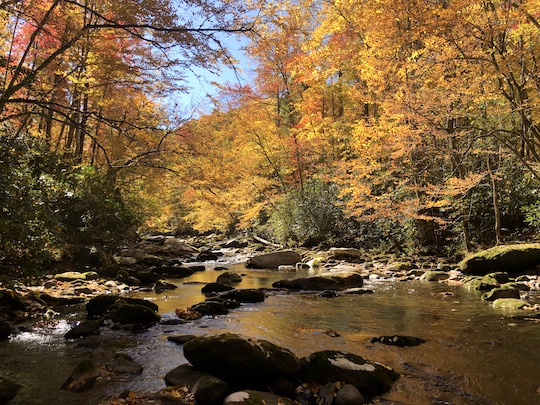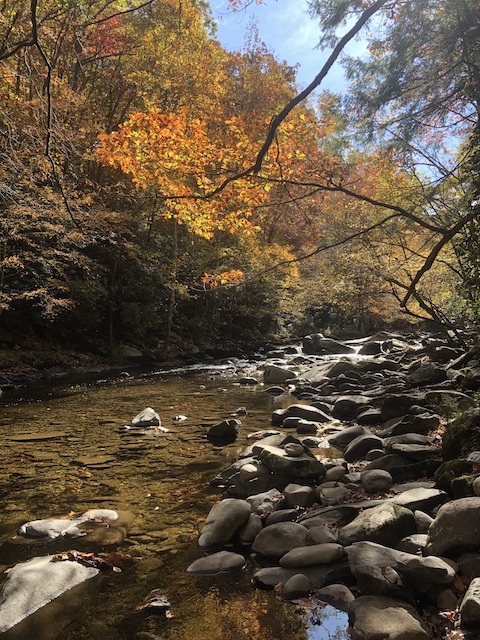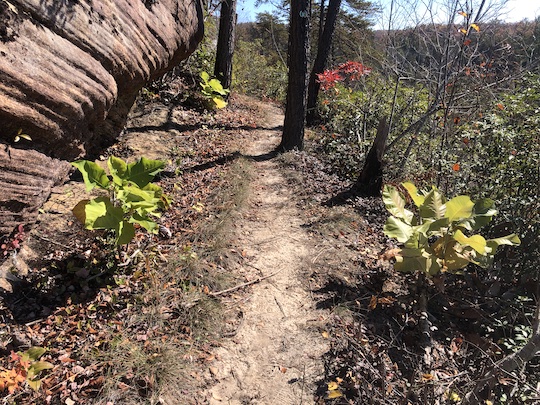Fly fishing in Yellowstone is all about tough decisions. For example,
should I fish the Lamar River today or perhaps the Yellowstone? Or the west side rivers such as the Madison, Gibbon, or Firehole? Or numerous other fantastic streams, rivers, creeks, lakes, ponds...well you get the picture. I suppose it is a good problem to have, and like most other decisions in life, the best way forward is to simply decide and be done with it.
So I found myself headed for the Lamar River Valley in the northeast corner of Yellowstone National Park. My second full day in the Park was bright with promise and more than a hint of the unseasonably warm afternoon in store.
After the great breakfast at Canyon the previous day, I almost stopped again a second time, but knew that I had plenty of food that needed eating. With the chilly early morning, this kicked off a routine that stayed largely intact throughout my camping trip: drive to my fishing location early, and then eat breakfast by the water while things warmed up. That proved to be a winning formula that I'm still using here in Tennessee. Upon arrival in the Lamar Valley, I found an open pulloff and fixed a breakfast of bagels, yogurt, granola, and carrot sticks (hey, I needed something fresh!).
After eating, the water nearly at my feet was still open so I quickly donned my waders and rigged up a rod appropriate for the conditions. My 9' 5 weight Sage Accel seemed ideal for the mix of nymphs and midges early in the day that would, I hoped, transition to dry flies or even hoppers in the afternoon. Little did I know what was in store for me that day!
In the first 70 yards or so of water, I saw a couple of fish that lazily crept up to glance at a heavy tungsten bead head Pheasant Tail nymph, but they just weren't ready to commit to such an offering. Just upstream, a large pool was formed where a riffle dumped into a seemingly bottomless hole. To one side there was a large rock formation sticking out into the current with a large back eddy on the upstream side. And in that back eddy? A big foam mat with noses poking through regularly to take some microscopic bug.
Not one to shy away from a challenge, I forded the riffle across rocks that were surprisingly slick. I was wearing my Patagonia boots with rubber soles and found they just weren't as good as felt. Creeping into position just above the back eddy, I started casting my hopper with the heavy beachhead nymph dropper. A couple of half-hearted slashes told me that they knew what hoppers were but probably just weren't expecting to see any this early in the day. A change of flies was in order. A smaller dry fly was my first attempt, but these fish were more stubborn than your average cutthroat. Next I dropped a Zebra Midge behind the dry fly and that proved to be the answer and good for 3-4 fat trout.

Eventually I decided that the majority of fish under that mat were probably either spooked or just getting smart so I headed on upstream. Fording the riffle was again treacherous, but just short of impossible. In other words, I was nervous the whole way, but in the end it worked just fine. Vowing to stay on
my side of the stream from here on out, I moved up to the next pool, this one a nice bend pool.
All things considered, this pool just didn't seem like the midge factory that the previous spot had been. With a lack of rising trout, I returned to the hopper/dropper setup and significantly increased the dropper length for such deep water. Slowly working into the inside of the bend, I was finally throwing my flies into the riffle at the head so the nymph would sweep over the drop off. Just as I had hoped, the hopper shot down after several drifts and when I set the hook, a big golden slab flashed.
As with most situations where you have a big fish on the line, my heart momentarily stood still before panic set in. Just as quickly I realized that only a calm effort on my part would ultimately help me to land the fish. Talking myself through the fight, I fought the fish and countered its every move. Every time it would start to come up in the water column, I caught a glimpse of those bright golden flanks. Finally I slipped the net under and the fish fell in just as the nymph fell out of its mouth. Talk about a close call.
The big cutthroat would prove to be one of the largest I landed during my trip, measuring right at 19 inches. After such a long fight, I didn't want to go through the whole hero shot routine so I took a couple of shots in hand and then let it go.
Heading upstream, I had a couple of shots at decent fish before running into another group of anglers. My morning was more successful than I had hoped for, and so I happily headed back to my car for a break. It was time to look for another spot.
By this point in the day, a few things were coming back to my remembrance. Just the day before, a gentleman I spoke with had mentioned that the Lamar was muddy when they passed it. The week before, rain had fallen across the watershed. Known to muddy easily and clear slowly, the Lamar is said to fish extremely well if you hit the stream on the day that the water is clearing, or at least that is what my memory was telling my based on repeated readings of
Craig Matthews and Clayton Molinero's Yellowstone Fly-Fishing Guide. As it turns it, both the book and my memory were correct. I was in the middle of the day of days, one to remember for many years to come. The afternoon was warming even more than I had anticipated with the temperature gauge on my car pushing into the upper 70s. Driving towards the next spot with my windows rolled down, I heard the sound I hadn't dared to hope for this late in the season:
grasshoppers!!!!
Having driven past the junction pool where the Lamar River and Soda Butte Creek join many times over the years, for some reason I never actually stopped to fish there. As it turns out, that was a mistake. The hardest part about fishing here is finding it open. Normally there are other anglers already fishing it, but on this day of days I found it open and beckoning me.
This time I found rising trout. Best of all, they liked my hoppers. I'm not fancy when it comes to fishing and tying hoppers. My hoppers are simple foam and rubber leg jobs, quite similar to the classic Chernobyl Hopper. Apparently the fish liked them though as they chewed threw one and then another until I was glad that I had fly tying materials and a vise along with me. I would be tying again that evening.
Eventually, I did something I never thought I would do and quit fishing. At some point, it is probably greedy to keep catching trout under such conditions. I was more than satisfied and decided to hike up to Trout Lake just to see the scenery and see if any fish were moving around.
After a quick but intense hike up the hill, I headed straight for a spot that normally holds a fish. Sure enough, there it was. The hopper was only mildly interesting but a beetle was much more intriguing. Enough so, in fact, that I hooked it after only 2-3 casts. A quick circuit of the lake and a hike up to the next lake above provided some great views but no more trout.
By this time, the sun was headed towards its rendezvous with the horizon. Recognizing that I had enough time to head back to camp and still fish an hour or so, I decided to make a run for it. The Gibbon was calling. Along the way, I found the usual bison and also some bighorn sheep posing for tourists taking pictures so I joined in the fun.
After shooting this picture, I was driving again, headed towards the highlight of my trip. Of course, I didn't know that at the time...
To Be Continued























































